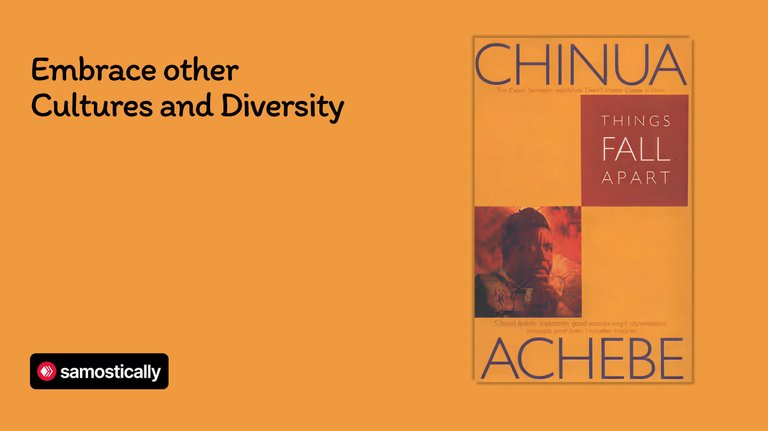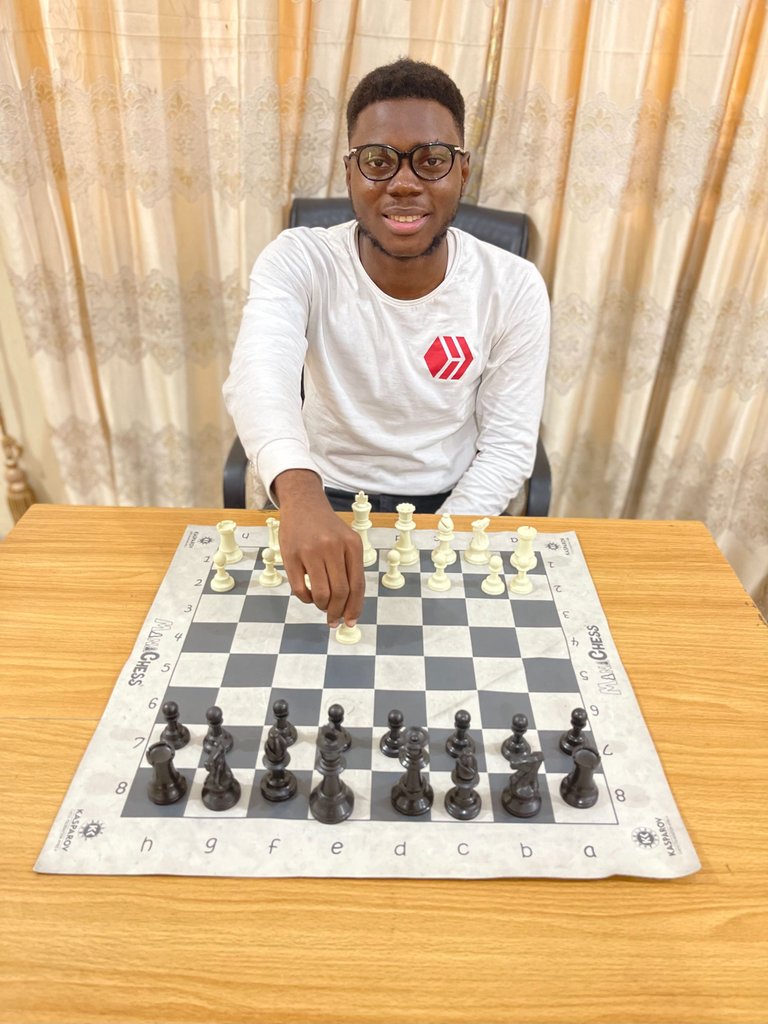Lesson from an African Classic

Hi there,
Welcome to another book post on my blog, and this time it will be from a classic I read way back in my university, and yes, it was from my roommate's bookshelf. It is not that I did not have a book of my own back then in school, but since we shared a bookshelf in our dorm room, it was quite natural for me to borrow his books, and he was an English student, so it made more sense that he had more novels and African literary classics, compared to my Chemistry, biology or even Physics books. Also, I enjoyed reading it in order to engage in certain conversations that may involve the literary book I read.
Today's lesson from an African classic is to embrace other cultures and diversity. I will be using Chinua Achebe's book Things Fall Apart as a case study. Given that I have written a book review about Chinua's book titled Anthills of the Savannah, it occurred to me that it might just be a good idea to talk about certain lessons I picked up from certain African books or novels, so I chose Things Fall Apart for this episode.
For the previous post on Chinua Achebe's Anthills of the Savannah, you can use this link to read it:
Book Review: Anthills of the Savannah
To a certain point, I can say Things Fall Apart has to be one of the most popular literary books ever written by a Nigerian author, and that includes contemporary Nigerian writers of today. At some point, I did not know which was more popular, Charles Dickens' Oliver Twist or Things Fall Apart. I compare it to Oliver Twist because of how popular the book Oliver Twist is in the literary culture. It played a huge role in my childhood, and at some point, I can say every adult in their late twenties or thirties has read Oliver Twist at some point.
Regarding the popularity of Things Fall Apart and what an instrumental role it plays in Nigeria's literary culture, old and modern, this is what Wikipedia has to say:
Things Fall Apart is regarded as a milestone in African literature. It gained critical acclaim and popularity upon publication and has been translated into over fifty languages. It was listed on Time's "100 Best English-language Novels from 1923 to 2005". The novel has had several adaptations, including the radio drama Okonkwo (1961) by the Nigerian Broadcasting Corporation, as well as the 1971 film Things Fall Apart, which starred Princess Elizabeth of Tooro.
Wikipedia
Interpreted into 50 languages, that says a whole lot, and I rest my case. To buttress the lesson, embrace other cultures and diversity, Chinua describes the coming of the colonialists with their culture, religion, and way of doing things as an intrusion into the land of the Igbo people. There was no regard for their culture, and in my opinion, this is what caused the genesis of the problem and everything that followed.
You cannot tell me that you come into my house without any form of respect for my culture or regard for the way I run my affairs, and you expect things to run fine just like that. Hell no, there will be problems that will lead to chaos and later on turn into war. This is how things played out between the colonials and the Igbo people. They came in with their culture and way of doing things and gave no room to the Igbo people and their already established form of governance.
When you fail to understand that the world is built with different individuals with different personalities, upbringings, and backgrounds, you will run into more conflicts than you can count or expect. Instead, learn to appreciate them for their diversity and being open to learn about their way of doing things, rather than holding on to stereotypes set in your head by things that are not entirely true.
Embracing other cultures and diversity is what makes it cute when we see foreigners speak our language and try our food, and when we do the same. Just like Hive is built with different communities with different rules, so is life. Embrace the diversity and enjoy the culture.
That is a wrap for this lesson from an African Classic. See you at the next one.


I am @samostically. I love to talk and write about chess because I benefited a lot from playing chess, and I love writing about chess.
♟♟♟♟♟♟♟♟♟

Posted Using INLEO
I was amazed seeing you review chinua Achebe's book...such an old but valuable author till date. Your level of knowledge diversity is intriguing Sam, and I guess reading books helped you a lot
Talking about things fall apart, We can't go wrong in embracing cultural diversity and respecting each other's culture
Nice review btw.
!PIZZA
$PIZZA slices delivered:
@nkemakonam89(1/5) tipped @samostically
Come get MOONed!